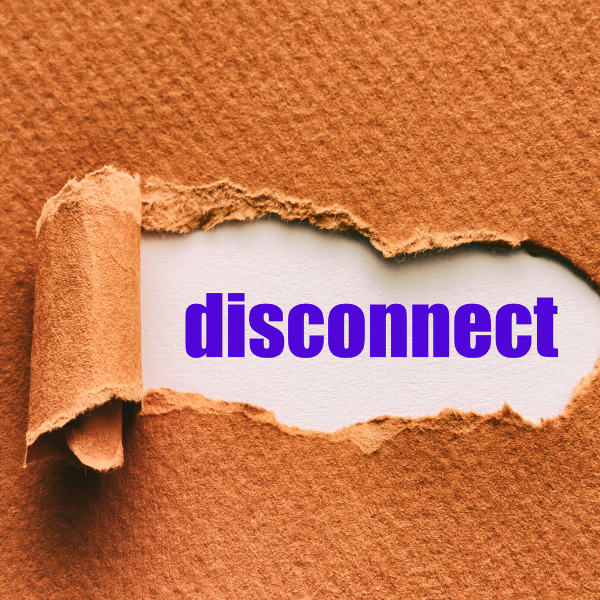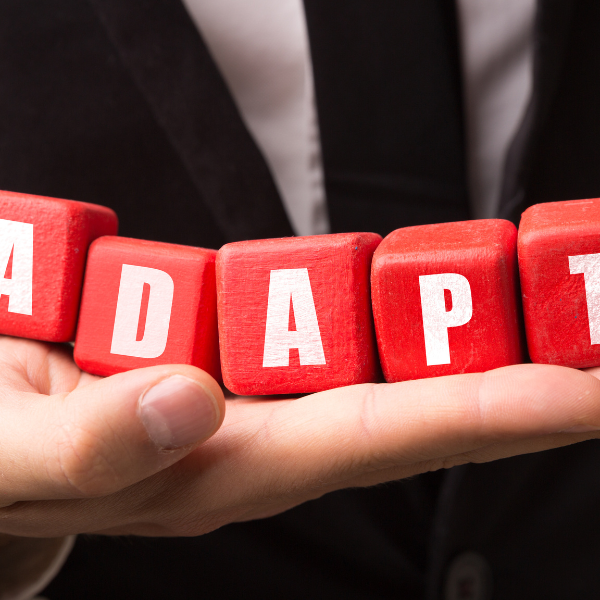All Things Admin Joins ASAP. Learn More ›
How to Navigate Generational Differences
April 30, 2024

Do you have generational biases at work? Dr. Carrie Spell-Hansson shares how you can start challenging assumptions and having more meaningful conversations with colleagues across generations.
Recorded at EA Ignite Fall 2023 and produced by the American Society of Administrative Professionals - ASAP. Learn more and submit a listener question at asaporg.com/podcast.
Download this episode for later and make sure to leave us a 5-star review on Spotify and Apple Podcasts!
Transcript
Leah Warwick: Hi, everyone. I'm Leah Warwick, and you're listening to "The Admin Edge." This episode was recorded at EA Ignite Fall 2023 in Austin, Texas, where I've talked to experts about the importance of adaptability, knowing your boundaries, communicating your value at work, and more.
Now let's consider the subject of generational differences. This episode is about managing generational differences in the workplace, and my guest, Dr. Carrie Spell-Hansson, has so much wisdom to share on this topic. Carrie is the founder and CEO of the Folke Institute designing and delivering programs for positive individual and organizational change. Dr. Carrie, thanks for being here.
Dr. Spell-Hansson: Thank you. I'm really excited to be here with you today, Leah.
00:00:58
Leah Warwick: I'm excited to have you here, too. I think we should start with a foundational understanding. What defines a generation?
Dr. Spell-Hansson: That's an excellent place to start because so many people are really not aware; we use the term so fluently, but yet we're not quite sure what it is we're speaking about. A very short definition is that we define a generation as an identifiable group that shares birth years, age, location, and significant life events at critical developmental stages.
Basically, members of a generation share experiences that influence the way that they think, their values, their behaviors, and their reactions. Individuals, of course, bring their own personalities and influences, in particular backgrounds from their race, class, gender, region, family, religion, and such. But more broad generalizations are possible about those born in approximately the same years.
00:01:56
Leah Warwick: I wonder about the point you bring up in a lot of your training, which is very interesting, that this is the first time that five generations are working together in the workplace. Could you tell me a little bit about those different generations?
Dr. Spell-Hansson: You think about technology and medicine and such. We're living so much longer. We actually have six generations living, of which five work in the workplace because we're also working longer. People were retiring much earlier years ago.
Right now, we have what we call the Silent generation. Those are folks born from 1925 to 1945. When you think about it, there are still people in the workplace that are doing great things. From an actor or actress standpoint, we think about Jane Fonda or we think about so many people that are currently still working that fall within that category.
00:02:44
The second group is what we call the Baby Boomers generation. Those are folks born from 1946 to 1964. Then you have Generation X, folks born from 1965 to 1979. You have Millennials, and those are folks born from 1980 to 1994. And finally, now in the workplace we have Generation Z, those folks born from 1995 to 2012.
Again, we have such a wide span. I'm sure we'll talk more about each one of the generations, but that's primarily those that are in the workplace right now. Obviously, the challenge is learning how to live and work together and be successful within the organization with the varying life experiences that each generation brings.
Leah Warwick: Yes. It's important to acknowledge the differences but also the similarities. You talked about that in your session. Why do we focus so much on the differences and not the similarities? By generation, it seems to be not just with one generation versus another, but all generations seem to struggle with certain ideas about generations that are not theirs. And possibly—and we can go into it—the different defining events of each generation that bind them together, they don't share with the other generations. Do you find that to be a big source of where those differences of thought and differences in behaviors stem from, having those different life experiences?
00:04:13
Dr. Spell-Hansson: Yes. The life experiences but also how we're treated. You think of media. You think about television shows and such. What sells, of course, are focusing on the differences and where we may clash or have conflict with each other. Then, in turn, we internalize that and we go into the workplace with this knowledge of focusing on the differences as opposed to the similarities.
Leah Warwick: Yes. I noticed that's where you started in your session here at EA Ignite. And then we started talking about the words that define the different generations. We saw some commonalities come up with the Baby Boomer generation that was represented in the room. We heard the word "loyal" quite a bit, "committed." With Gen X, we often heard "adaptable," "latchkey kids," often "forgotten about." With Millennials, we heard "innovative.” We heard "creative" or perhaps "creatively entitled." That was a big portion of the people that were in the room. But, of course, there were also some thoughts about Gen Z, about how they're more "rebellious," more "vocal" maybe.
00:05:25
I would love to hear more from you about what you've learned in your work, working with the different generations.
Dr. Spell-Hansson: Well, one of the things that I shared in the session as well is keeping in mind that we were influenced growing up in a certain generation. And one of the questions I always ask is: “When you think about your generation or when you think about growing up, what was the biggest influence on you during that time?” Because that also shapes how you interact in the workplace. And because each generation has had significant events that helped to shape and mold how they think and how they do things, it impacts or affects them differently.
00:06:03
For example, when you think about the matures, which, of course, was the first generation that I mentioned, which we call the Silent generation, one of the things that we know is they had the Korean War, the Vietnam War. Women stayed home, generally, to raise children. Those were the major influences, so their behavior became more disciplined, self-sacrificing, because when you think about war... you think about what you need to do for others, and certainly for the good of the country at that point. And so they became the richest, most free-spending retirees in history because of what they were able to accomplish.
00:06:41
When you think about your Baby Boomers and you look at their behaviors, they ushered in the whole idea of free love. You may have heard of Woodstock and all of those things that were experienced, and also the non-violent protests started with that generation. And they were all so optimistic, driven, and team-oriented.
Your Gen X's, of course, were the latchkey kids. That's why we call them the Forgotten Generation because they were also the smallest group. If you think about the Baby Boomers, they had less children. And because they had less children, that next generation became very small. And because they had less children, they were working, and that's when women's rights, women's liberation [occurred]. Women were moving into professional roles, so you had less children to focus on at that time. Gen X's became more entrepreneurial and very individualistic because they were accustomed to being separate, latchkey kids and all of that, so that's what happened there.
00:07:40
And then you move into the next generation, which would be your Gen Y's. That was the 9/11 generation. And they don't live to work. That's another difference with the Millennials. That's not how they think. They prefer a more relaxed work atmosphere. You think of Google. You think of Facebook. You think of what happened there. They want less structure, and yet creative, but they also want less structure.
Then, lastly what we have is our Gen Zers. The Gen Zers, as I mentioned, 95% of them own smartphones, which is pretty amazing. What age did you actually have your own phone, right, compared to them? And they're savvy consumers.
Leah Warwick: I love how you talked in your session about seeking to understand, because we heard a lot of the conflicts that happen between generations that were brought up in the storytelling in the room. Then you brought in tips and strategies. The first one you mentioned is seeking to understand. You also talked about "assume good intent."
When there is a conflict at work with two members, let's say, of two different generations, how would you suggest that they go about resolving that conflict?
Dr. Spell-Hansson: First and foremost, like you said, one of the best strategies is seeking to understand as opposed to wanting to convince the other person why you are right, or why you see things the way you see them. I suggest that you ask the other person to tell you a little bit more about their position and why. Then, at that point, you share what you're thinking.
00:09:11
You don't have to necessarily say to them, "Well, I disagree with you" or "I agree with you," because it's really not about agreeing or disagreeing. It really is about understanding the person's point of view and accepting it. And if you're talking about different generations, chances are you will not be able to see it from their perspective because that's not the way you were raised. That's not the lens upon which you see the world. So you may find that. You can acknowledge, respect, and accept that that's the way they see it, and then, in turn, say to them, "This is how I see it or how I view it." Again, not from a standpoint where you're trying to convince them; this is not a debate. This is a dialogue. A dialogue is open-ended. There are no sides. No one has to win or lose. You dialogue with the person when you're seeking to understand.
00:09:58
So that's what I would suggest. That would be one of the main things. And then also one of the tools that I teach is that intent does not always equal impact, so understanding that we can have the best intentions in the world and if each one of us took a moment and thought about when we have found ourselves in a situation where we had the best of intentions and it landed the wrong way, sometimes we're completely thrown off by that, because we knew exactly what we were thinking, but not recognizing that the other person has to filter what we just said or did through their lens and their experiences. By doing so, it may land differently for them. So if we can remember that intent does not always equal impact, that helps us then to be able to go back and state what our intent is.
00:10:44
If we're the recipient of that, we get to share the impact of what the person did, not using the term "you" but "This is how I just experienced what you said to me or what you did. This was my experience," allowing the other person or giving them some space so that they can then share or state their intent at that point.
Leah Warwick: Yes. And I also like how you brought up—because someone in the room said, "It doesn't matter if my boss is younger than me. If they respect me, I'll respect them." And then you brought up, "Well, what is their definition of respect?" And that took it to an extra layer. You have to go a little deeper and ask these things of people because you might have a definition of respect based on your generation that's different than the other.
Dr. Spell-Hansson: Exactly. And oftentimes we throw that word around so loosely. In general, "respect" and "this person doesn't respect me." Maybe the person does not know how you are defining respect. We grew up, again, in different homes, different households, different communities, different states, sometimes different countries, and so we're taught one way and we have a definition of respect, and sometimes we have to share that with the other person, in terms of why I feel disrespected. This is how I define respect. And perhaps even find out from them: What does respect mean to you?
00:12:06
Otherwise, I'm going to be respecting you the way I think respect should be and it may be completely off for you.
Leah Warwick: Oh, yes. In your work, you go a lot into biases and assumptions. A bias stems from having an assumption oftentimes and not interrogating that assumption or not asking the other person, "Well, how is it for you?" And that does lead into a listener question that we have that was submitted. This person writes: "I'm a Gen X admin and I have admins on my team who are Millennials and Gen Zers. Our supervisor is a Boomer. He has expressed frustration to me about the younger members of the team and made blanket statements about generations, like how Gen Z is even worse than Millennials with how entitled and too sensitive they are, etc. How can I steer him in the direction of trying to understand generational differences better so we can work better together as a team?"
00:13:03
Dr. Spell-Hansson: That's a fabulous question. One of the things that I oftentimes say is that one of the best tools—one of my areas of expertise—is communication. One of the best tools that we can use in our communication is asking questions. Oftentimes we go into the defense. If someone says something, let me defend or explain why it's not that way. What I suggest, even in this situation, is I would say to the listener, "Have a conversation with your boss and ask him, 'Well, why? Why do you think that Gen Z's are like that?'"
What I have found through my research and my experience is that most of the time when people are saying this, they have never personally experienced it. It's something that they've seen on social media or some of the sitcoms that we watch where this is the image that has been sort of carved into our mindset about the individuals, which, of course, are biases.
00:13:59
So when we question our biases personally, or when we're in conversation with someone, it's like, "Well, wow. That's really interesting. Tell me a little bit more about why you see it that way," just to find out. Again, you can coach the other person—I don't want to use the word "lead;" I prefer "coach"—to thinking about what they're saying. Oftentimes, what will happen is, by your asking questions, the person will get to the point where, "Wow, I guess I don't really know anyone like that." And then also share with them some of the things that the person does well or the individuals do well. Again, we're looking for common ground because we want to reach our goals. We want to do what we were hired to do. So how do we go back to that place and start from there, as opposed to starting from our biases?
00:14:49
Leah Warwick: I appreciate that answer so much because I don't think, a lot of the time, we take the time to really get to know each other at work. Not only is it better for our personal work relationships; it's better for the organization that we serve to be a united team and to understand each other or seek to understand as best we can. I appreciate it. Thank you so much for coming on the podcast. It's been an honor. Where can listeners find you online and see your work?
Dr. Spell-Hansson: I'm on social media. My company is The Folke Institute. You can contact me at [email protected]. Definitely check out our website at www.thefolkinstitute.com as another way. I'd be happy to answer any questions. You can get our newsletter, or we also do an inclusion calendar that we give out at this time of year. The 2024 calendar is amazing, so please reach out to us.
00:15:46
I also have an article that I wrote on generations in the workplace that talks about how to deal with the different generations. If anyone emails, I'd be happy to share that with you as well.
Leah Warwick: It's such important work, and it's such a pleasure to have you here at EA Ignite. Thank you for this conversation.
Dr. Spell-Hansson: Thank you. It's always a pleasure to chat with you.
Leah Warwick: Thank you for listening to "The Admin Edge," produced by the American Society of Administrative Professionals. Original music and audio editing by Warwick Productions. If you liked this podcast, please leave us a five-star review wherever you listen to podcasts, and subscribe. If you want to send a listener question, you can submit via the form on our website at asaporg.com/podcast.












